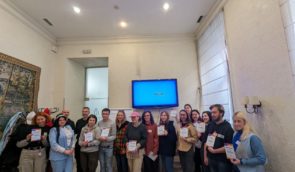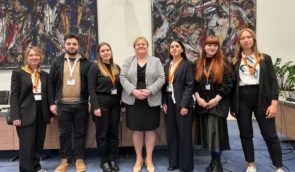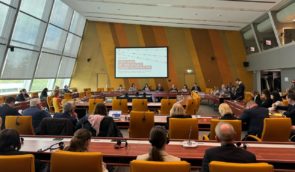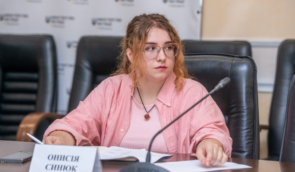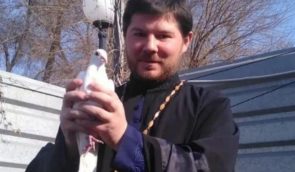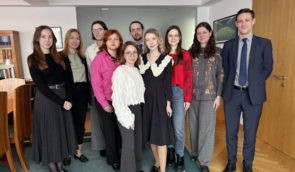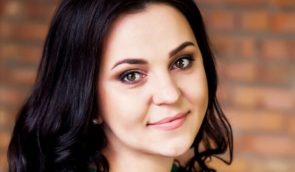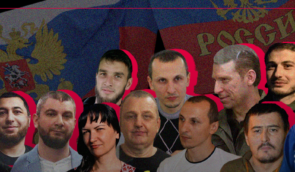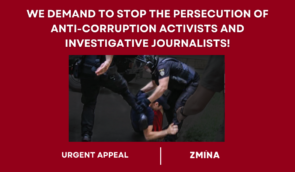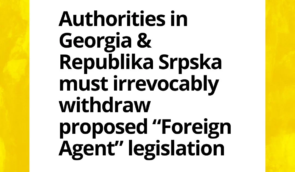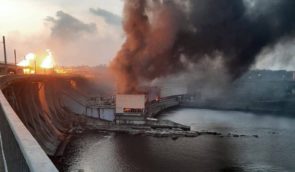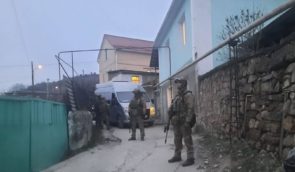Yurii Lukanov presented two books in Great Britain devoted to journalism during the war
During his trip to Great Britain, journalist and writer Yurii Lukanov presented English translations of two of his books, which are devoted to journalism during the war – “Reporter Volkovsky” and “The Press: How Russia destroyed Media Freedom in Crimea”. The latter was first published in 2018 by Human Rights Centre ZMINA, and later, in 2023, its updated and supplemented version was republished.
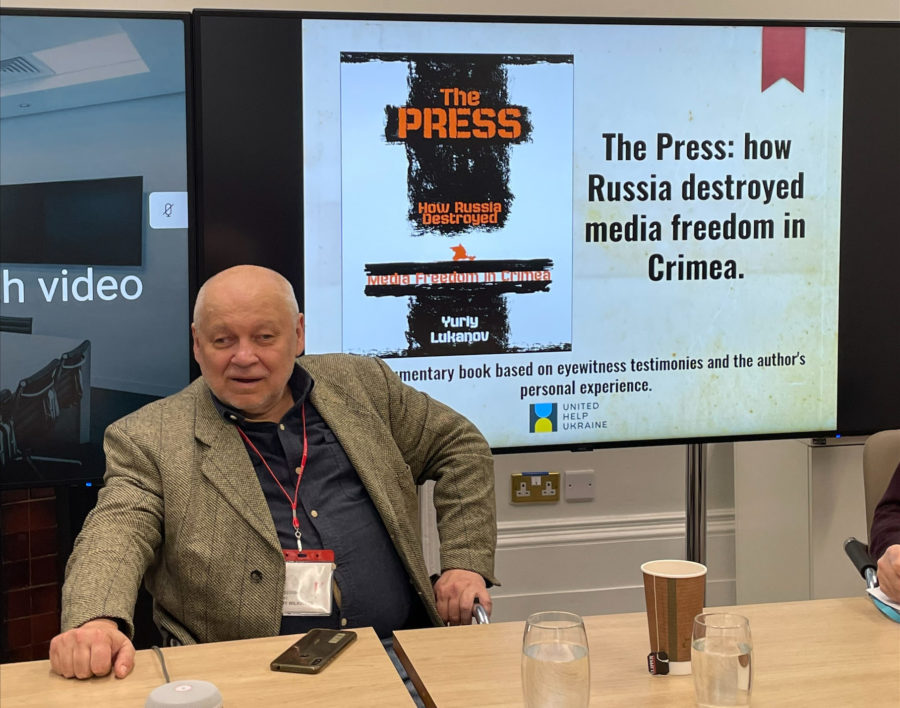
Thematic events for the presentation of books and discussion of the situation in Ukraine took place at the London Metropolitan University (February 20), at the Foreign, Commonwealth and Development Office (February 21), at the University of Oxford (February 22) and at the University of Glasgow (February 26). A meeting with Financial Times journalists is planned as well.
The presentation trip was supported by the American foundation United Help Ukraine.
Lukanov dedicated these presentations to two tragic dates – the 2nd anniversary of the beginning of Russia’s large-scale invasion of Ukraine and the 10th anniversary of the beginning of Russia’s war against Ukraine.
According to the author, looking through Russian “glasses” makes it difficult to objectively assess what is happening in the post-Soviet space. He urged people to listen to the voices of other peoples of the former USSR, and then the world will better understand what is happening in Ukraine and will more deeply understand the nature of Russia’s aggressive behaviour.
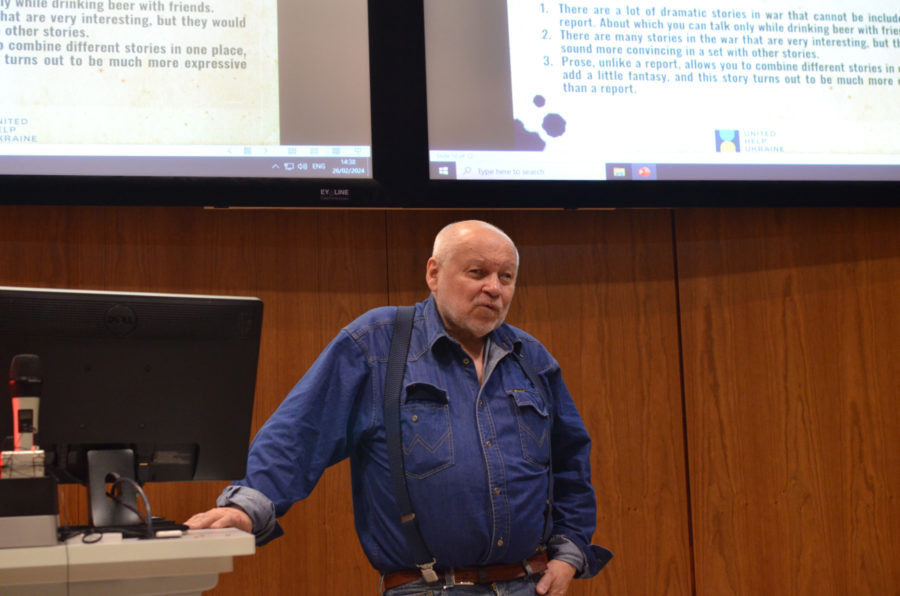
The documentary book “The Press: how Russia destroyed media freedom in Crimea”, published in the second edition by the German publishing house Ibidem Verlag, has four additional chapters. They tell about how the occupation authorities are fighting against civic journalism, which was formed in place of the destroyed professional journalism. If the occupiers used to attach punishment to information that is allegedly biassed, now they simply accuse citizen journalists of possessing explosive devices or narcotics. Accordingly, prison terms are much higher.
Yurii Lukanov emphasises that the decision to occupy Crimea was not spontaneous: the Russians prepared for it in advance, in particular, they fought against journalists. Thus, on the eve of 2014, the State Duma of the Russian Federation adopted amendments to the Criminal Code – Article 280.1, which establishes responsibility for public calls to violate the territorial integrity of Russia.
“They anticipated that there would be many dissenters and planned to use this article as a tool to neutralise dissenters”, he said.
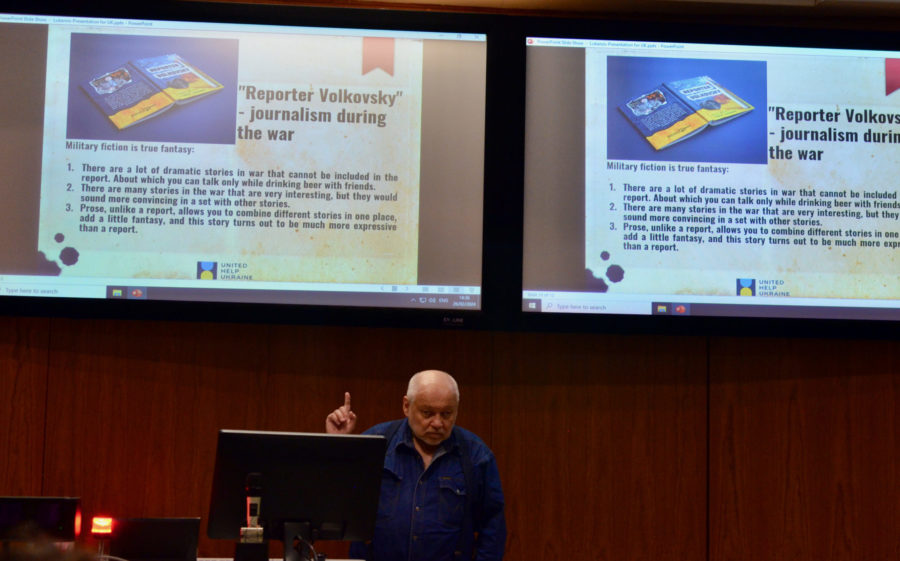
Yurii Lukanov spoke about the persecution of representatives of international organisations, in particular the OSCE and the UN, the beating and capture of journalists, the expulsion of Crimean Tatar mass media from the peninsula, and other crimes of the occupation authorities.
The second edition was published with the assistance of the human rights organisation ZMINA, which published the first edition with the support of the British Embassy in Ukraine.
“Reporter Volkovsky” is a book of military prose, which was published last year in an English translation by the American publishing house Defiance Press. It tells about the new challenges faced by journalists in a country that has been attacked by an aggressive neighbour. In particular, the journalists had to find an answer to the question of whether a professional can lie in favour of Russian propaganda in order to survive.
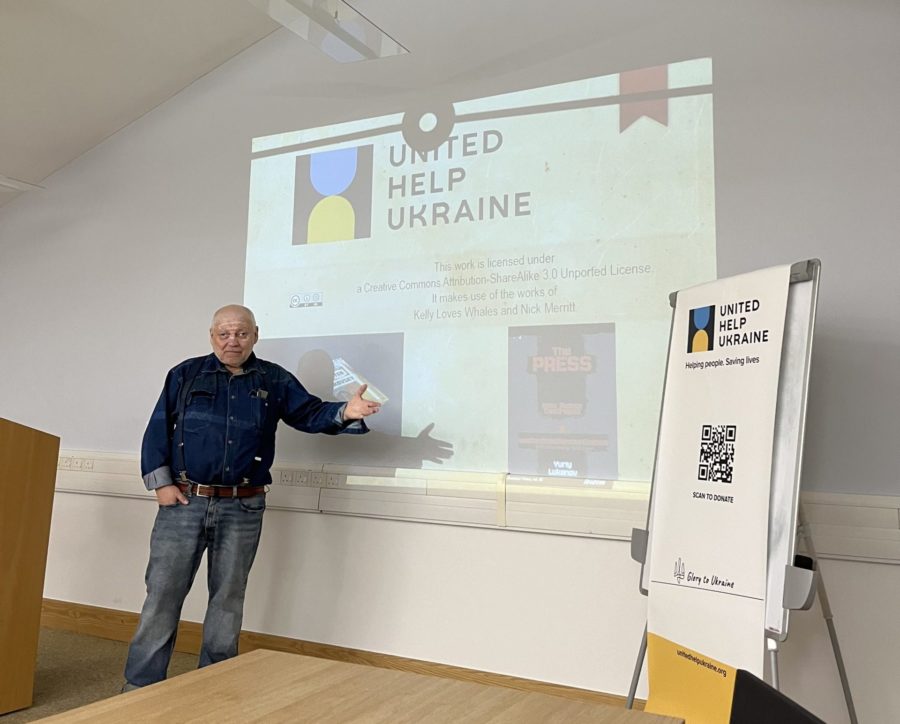
The common thread in the book is the story of the conflict in the families of journalists who were divided due to political preferences: some remained loyal to Ukraine, while others supported the vision of “Russian peace”. Due to ideological differences, the heroes suffer and even die.
Speaking about it, Lukanov explained why he started writing prose. In his opinion, a prose work has more opportunities to tell more clearly about such a terrible thing as war.
Last year, with the support of United Help Ukraine, Lukanov made a three-week trip, presenting “Reporter Volkovsky” in American educational institutions.

